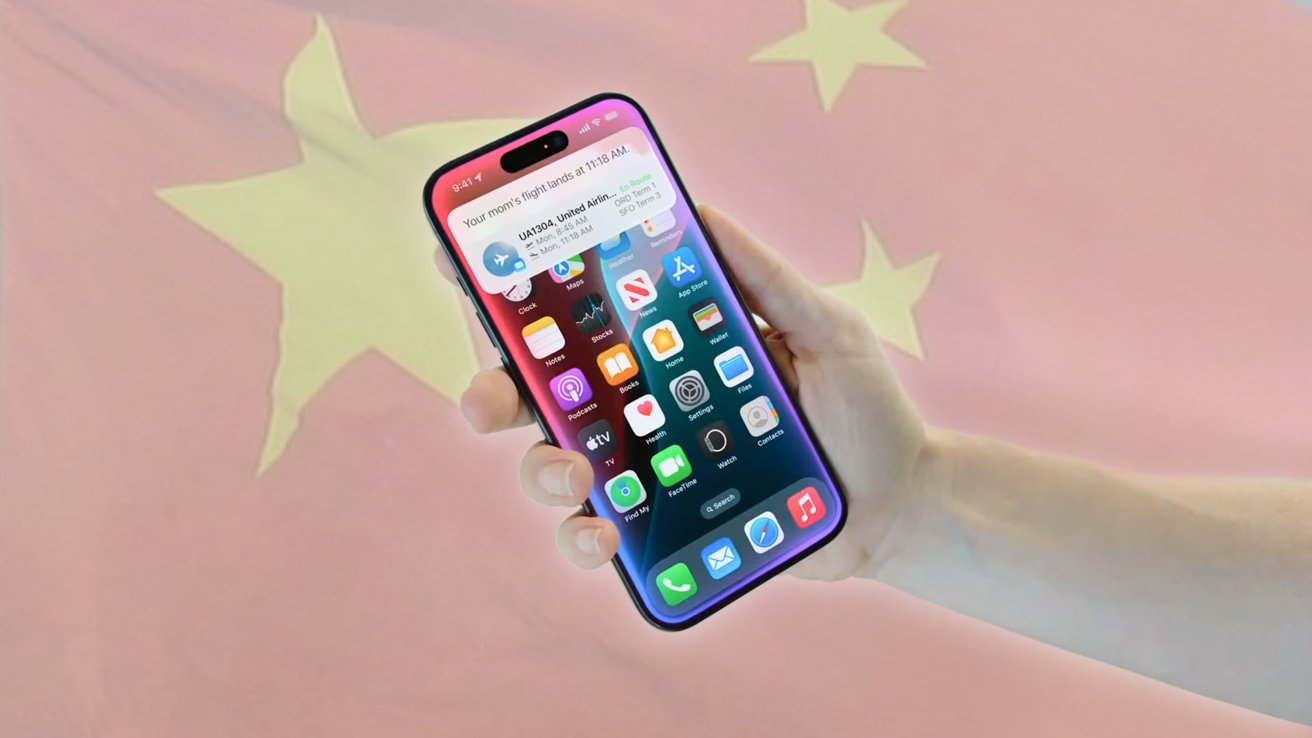
Apple Intelligence has a long way to go before launching in China

Apple is reportedly in talks with ByteDance and Tencent to integrate their AI models with Apple Intelligence in China, so it can expand the feature set to the lucrative market.
Apple is slowly rolling out Apple Intelligence to iPhone, iPad, and Mac, by gradually introducing it into new markets. However, to do so in China, it’s seeking assistance from other companies.
Apple is said to be in discussions with Tencent and ByteDance, the owner of TikTok, about Apple Intelligence. Reuters reports on Thursday that Apple wants to use AI models from the two companies to flesh out the version of Apple Intelligence offered to users in China.
Sources say the talks are at an early stage and are not publicly known about. None of the three companies responded to the report’s request for comment.
Apple Intelligence partner problems
Apple’s problem is that it has to abide by the regulatory restrictions in place in China, as with other countries around the world. The Chinese government has to authorize AI providers to offer services to consumers, and Apple hasn’t received that approval for Apple Intelligence functions.
To work around the regulations, Apple intends to use a move that it has done before: partner with a company in China who is already approved to operate there.
Models such as Google’s Gemini and OpenAI’s ChatGPT are not authorized in China, so Apple cannot use them. Instead, it has to tap local tech companies.
Its first attempt is with Baidu, the equivalent of China’s Google, ran into problems, according to reports from December 4. Baidu already performs searches for iPhone users in the country, which made a tie-up a natural progression in the business relationship.
However, Baidu’s large language models (LLMs) haven’t provided the kind of responses Apple wants, with a lack of ability to personalize responses to the user. Part of the breakdown is Baidu wanting to retain user data to improve its training. This is something the user privacy-focused Apple doesn’t want to permit.
Since Apple has to find a local partner, Tencent and ByteDance have become the latest suitors.
Tencent is another big-tech company, with a sprawling empire ranging from social media and online gaming to cloud computing and payment systems. ByteDance is the firm behind TikTok, which has worked to perfect its own models to serve content to users around the world.
Both companies have extensive experience with their own LLMs, which makes them potential partners for Apple Intelligence.
One of the regulatory issues Apple faces in China is data ownership, with the government wanting Chinese user data to be stored in the country instead of abroad.
Apple already meets this requirement for iCloud user data, as the Chinese-based firm Guizhou-Cloud Big Data (GCBD) is the legal owner of the data in China. This arrangement effectively allows for the Chinese authorities to demand access to data owned by GCBD, not Apple, which shields Apple from issues with U.S. regulations that prevent such requests from happening.
It is probable that any agreement with a firm in China involving Apple Intelligence will deal with a similar data ownership matter the same way.
The specter of Chinese government ownership is also apparent with any company Apple deals with in China. The government has a stake in a domestic subsidiary of Tencent, which plausibly eases the ability for Chinese regulators to demand access to user data.
The West has similar fears that China has influence over ByteDance, so it could potentially have access to TikTok user data from around the world. This has led to legal issues in the United States and the possible sale of the social network.
This potential access to user data is probably one of the main factors behind China’s in-country data storage regulations.
A lucrative partnership
Apple has only one real goal with the talks. It wants Apple Intelligence to be available in China.
Doing so is imperative to Apple, as it has lost some ground in China in terms of iPhone sales. With local rivals offering their own AI-based features to consumers, Apple’s lack of similar functions makes the iPhone less attractive to consumers.
By successfully partnering up and expanding Apple Intelligence into China, this gives Apple an opportunity to reinvigorate sales.
It’s a big enough concern that Apple CEO Tim Cook visited China in November, after insisting in October that Apple was “working hard” on an Apple Intelligence debut.
As for when Apple Intelligence could actually become available in China, the earliest opportunity would be in April 2025 as part of an expanded language support update. This is dependent on finding a local partner and working with them on the feature, and has every possibility of slipping further down the road.




